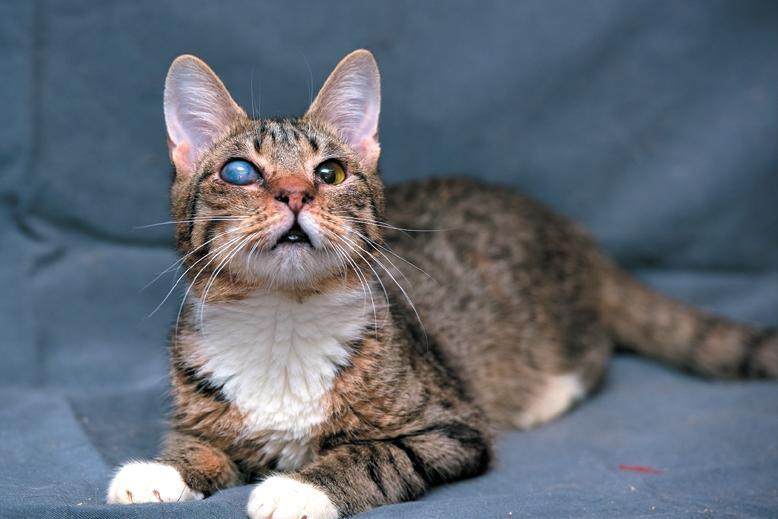Mon-Fri: 8:00 am - 8:00 pm
Sat: 8:00 am - 6:00 pm
Sun: 9:00 am - 5:00 pm
Open Hours
(604) 514-1444
Phone Number
19909 64 Ave #102
Langley, BC V2Y 1G9, Canada
Mon-Fri: 8:00 am - 8:00 pm
Sat: 8:00 am - 6:00 pm
Sun: 9:00 am - 5:00 pm
Open Hours
(604) 514-1444
Phone Number
19909 64 Ave #102
Langley, BC V2Y 1G9, Canada
Cataracts Surgery for Cats

- posted: Jul. 16, 2024
Cataracts, a clouding of the lens in the eye, can significantly impact your cat's vision and quality of life. If you notice your feline friend bumping into objects, hesitating during playtime, or having difficulty navigating familiar areas, it's important to seek professional veterinary care. Early diagnosis and treatment of cataracts by a veterinarian near you can help restore your cat's vision and allow them to see the world clearly again.
Signs of Cataracts in Cats
Cataract development in cats is often gradual, and signs might not be immediately evident. Here are some key indicators to watch for:
• Cloudy appearance in the eyes: The normally clear lens may develop a cloudy, white, or opaque appearance.
• Vision problems: Your cat might become hesitant to jump or climb, seem less engaged with toys, or bump into objects more frequently.
• Changes in pupil size: The pupil, the dark circle in the center of the eye, may appear abnormally large or small.
• Squinting: Squinting can be a sign your cat is straining to see.
If you observe any of these signs in your feline companion, schedule an appointment with a veterinarian near you for a comprehensive eye exam.
Cataract Surgery for Cats
Cataract surgery is the most effective treatment option for restoring vision in cats with cataracts. Here's a brief overview of the process:
• Pre-operative assessment: A thorough pre-surgical assessment is essential to ensure your cat is healthy enough for surgery. This may involve blood tests, an electrocardiogram (ECG), and other diagnostic tests recommended by your veterinarian.
• Surgical procedure: Cataract surgery is a delicate procedure performed by a veterinary ophthalmologist, a veterinarian specializing in eye care. During surgery, the clouded lens is removed and replaced with an artificial lens.
• Post-operative care: After surgery, your cat will need to wear an Elizabethan collar (cone) to prevent them from rubbing or scratching their eye. They will also need medication to prevent infection and inflammation.
Committed to Your Cat's Eye Health
If you're concerned about your cat's vision or suspect they may have cataracts, don't hesitate to contact us. Schedule an appointment with a veterinarian near you at Apex Animal Hospital by calling (604) 514-1444. Early diagnosis and treatment can significantly improve your cat's quality of life and allow them to see the world clearly once again.


